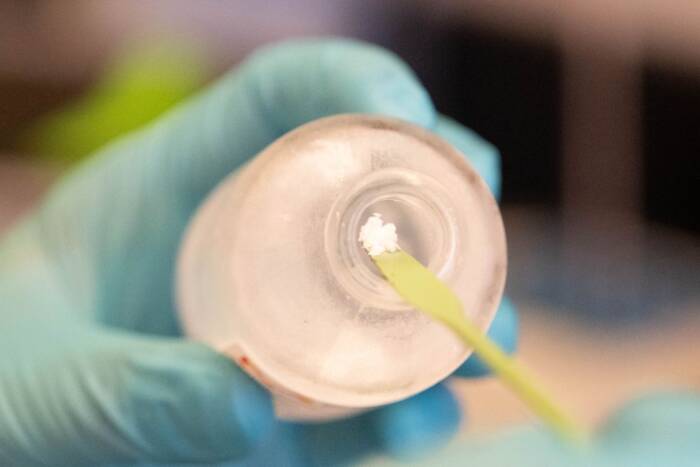Titia de Lange awarded grant, named American Cancer Society Research Professor
Titia de Lange, Leon Hess Professor and head of the Laboratory of Cell Biology and Genetics at The Rockefeller University, has received a $400,000 grant from the American Cancer Society and has been named an American Cancer Society Research Professor. The five-year grant, which is effective January 1, 2010, will fund de Lange’s continuing research on telomeres, the strings of extra DNA that cap and protect the ends of chromosomes through numerous cycles of cell division.
De Lange’s lab focuses on mammalian telomeres, which are made up of long arrays of double-stranded nucleotide repeats that end in a single-stranded overhang. Telomerase, an enzyme that recognizes this overhang, adds nucleotide repeats to chromosome ends in order to counteract the telomere shortening that occurs during cell division. Most human cells, however, do not contain telomerase, and the degradation of telomeres that thus occurs through many cycles of cell division leads to aging and eventual death of those cells. Cancer cells, on the other hand, often contain high levels of telomerase, allowing them to proliferate indefinitely. The goal of de Lange’s research is to understand how telomeres protect chromosome ends, how they interact with and regulate telomerase and what happens when telomere function is lost.
In its second of two grant cycles for 2009, the American Cancer Society awarded over $45 million to 94 investigators at 61 institutions across the country. Since its founding in 1946 the organization’s extramural research grants program has devoted approximately $3.4 billion to cancer research.
De Lange earned her undergraduate degree from the University of Amsterdam in 1977, her M.S. from the University of Amsterdam and the National Institute for Medical Research in London in 1981 and her Ph.D. in biochemistry from the University of Amsterdam and the Netherlands Cancer Institute in 1985. From 1985 to 1990 she was a postdoctoral fellow in the laboratory of Nobel laureate Harold Varmus at the University of California, San Francisco, where she was one of the first scientists to isolate the telomeres of human chromosomes. She came to Rockefeller University in 1990 as assistant professor and was promoted to associate professor in 1994 and professor in 1997. She was named Leon Hess Professor in 1999. De Lange is also associate director of the university’s Anderson Center for Cancer Research.
De Lange is an elected member of the Royal Dutch Academy of Sciences, the New York Academy of Sciences, the European Molecular Biology Organization, the American Society for Microbiology and the American Academy of Arts and Sciences, and a foreign associate of the National Academy of Sciences. Among numerous awards, she has received the National Institutes of Health’s Director’s Pioneer Award, the Charlotte Friend Memorial Award from the American Association for Cancer Research and the first Paul Marks Prize for Cancer Research.


